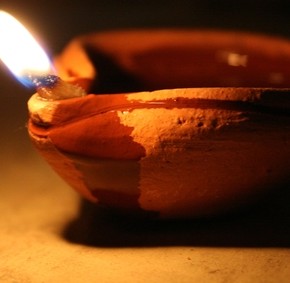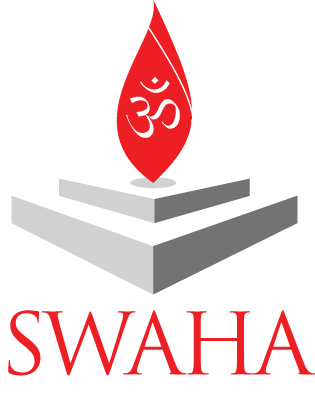 Why is there confusion about the date of Divali every year? SWAHA believes in enlightened ritualism, and strives to educate the public on the rationale behind our Hindu festivals and practices. Annually, there is some confusion among the Hindu community and the wider public as to why there is a lack of agreement on the dates of certain religious festivals – especially Divali. We believe that by publishing an explanation for date selection, there would be a greater awareness of how and why a given date is chosen.
Why is there confusion about the date of Divali every year? SWAHA believes in enlightened ritualism, and strives to educate the public on the rationale behind our Hindu festivals and practices. Annually, there is some confusion among the Hindu community and the wider public as to why there is a lack of agreement on the dates of certain religious festivals – especially Divali. We believe that by publishing an explanation for date selection, there would be a greater awareness of how and why a given date is chosen.
The first and foremost principle is that the dates for Hindu festivals calculated for India cannot be used in Trinidad and Tobago, or for any other city the world. The earth is an oblate spheroid (flattened sphere) with different time zones and variable length days in different cities. Given the latitude and longitude of a particular city, global astrological factors as well as local factors such as local sunrise and sunset are used to determine the date and time for religious observances. This means that a date for a religious celebration must be calculated and determined for each major location around the world. India is almost nine and a half hours ahead of Trinidad and Tobago. Even if this time difference is accounted for and Indian religious dates are adjusted, they still cannot be used, as the local factors (such as sunrise, sunset etc.) in Trinidad and Tobago still have to be taken into account.
Secondly, Hindus use a lunisolar calendar, meaning that the calendar is based on the moon’s celestial motion around the earth. In this calendar, a central concept is that of a lunar day or tithi. A lunar day is not like a 24 hour mean solar day that we are all familiar with. Instead, these lunar days are of variable length. Therefore, one lunar day may extend beyond a 24 hour solar day, or two lunar days may fit within one 24 hour solar day. Therefore, in combining these lunar days with our 24 hour solar calendar days, it is evident that there will not be a one-to-one correspondence. Because of this, there would be apparent variation in the length of Hindu festivals from year to year according to the solar calendar, but it would be correct according to the lunar calendar.
Thirdly, there are various systems of Hindu astrological calculation that are currently utilised. Some are based on ancient general formulas and rules-of-thumb that give approximate planetary positions. Other systems adopt a scientific, data driven approach and use modern methods of observation and calculation. SWAHA subscribes to the latter view, and we utilise calculations based on data from NASA Jet Propulsion Laboratory’s Ephemeris (positions of planets at a given time). These calculations lead to accurate planetary positions in accordance with astronomical observation as opposed to older methods of calculation that can produce large errors. Discrepancies therefore arise in calculations depending on which system is used, and this impacts the resulting selected dates for religious observances.
Divali is observed on the night of the new moon lunar day (amavasya) in the dark half (krishna paksha) of the month of Kartik. In Trinidad and Tobago, the new moon lunar day starts at approximately 11:53am on Tuesday 10th November 2015 and ends at approximately 1:47pm on Wednesday 11th November 2015. Therefore, if Divali were held on any other day in Trinidad and Tobago, activities essential to the observance of Divali such as the performance of puja and the lighting of deeyas in the night would be out of the new moon lunar day period. It is therefore the position of SWAHA that Divali should be observed on the evening of Tuesday 10th November 2015.
